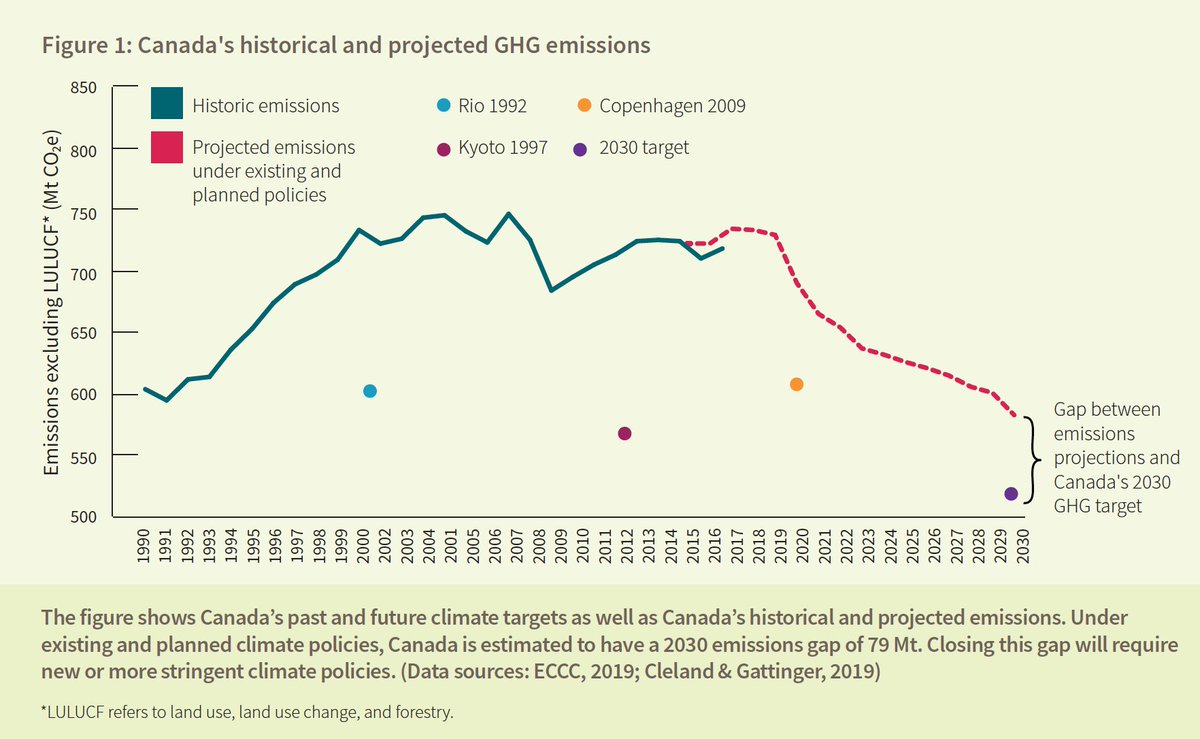The @FraserInstitute’s new analysis of the competitiveness impacts of Canada’s carbon price contains some serious flaws and misunderstandings. It misleads Canadians about what the impacts of the carbon price will be. #cdnpoli (1/10) fraserinstitute.org/studies/impact…
Quick background: Canada’s carbon pricing system has 2 parts: a fuel levy and an “output-based pricing system” (OBPS) for large emitters. An OBPS is a way to price carbon in sectors where a full carbon tax would cause production & emissions to shift to other jurisdictions. (2/10)
An OBPS creates an incentive for firms to reduce their emissions intensity of production instead of reducing production overall—to get cleaner, not smaller. See below for an explainer. (3/10) ecofiscal.ca/2017/05/24/exp…
The report’s analysis omits the fact that Canada is using an OBPS for this precise reason: to address competitiveness concerns. The modelling assumes the full $50/tonne price applies to large industrial emitters. This is not how the policy is actually designed. (4/10)
Based on policy design features that are not actually in place, the report says emissions-intensive, trade-exposed industries *will* face major competitiveness challenges. It ignores the fact that large final emitters will receive output-based allocations. (5/10)
In addition to modelling a policy that does not exist, the report relies on I/O tables instead of a CGE model and only examines short-run effects. This fails to capture behaviour & investment changes in response to policy. As a result, it significantly overestimates costs. (6/10)
While the report eventually acknowledges the OBPS in a short discussion, it seems to misunderstand how it is supposed to work. (7/10)
It seems to imply that treating firms differently based on emissions intensity is a bug rather than a feature. This design choice is deliberate. It rewards the best performers while providing all firms with an incentive to improve. (8/10)
The paper seems to assume that competitiveness can only be protected when a sector faces zero net costs. But each sector faces unique competitiveness pressures. OBPS design reflects these differences. It both protects competitiveness *and* drives emissions intensity down. (9/10)
Output-based pricing is a way to price emissions from industrial sectors while other jurisdictions catch up on climate policy. The Fraser Institute’s analysis acts as if it simply doesn’t exist. (10/10)
• • •
Missing some Tweet in this thread? You can try to
force a refresh





